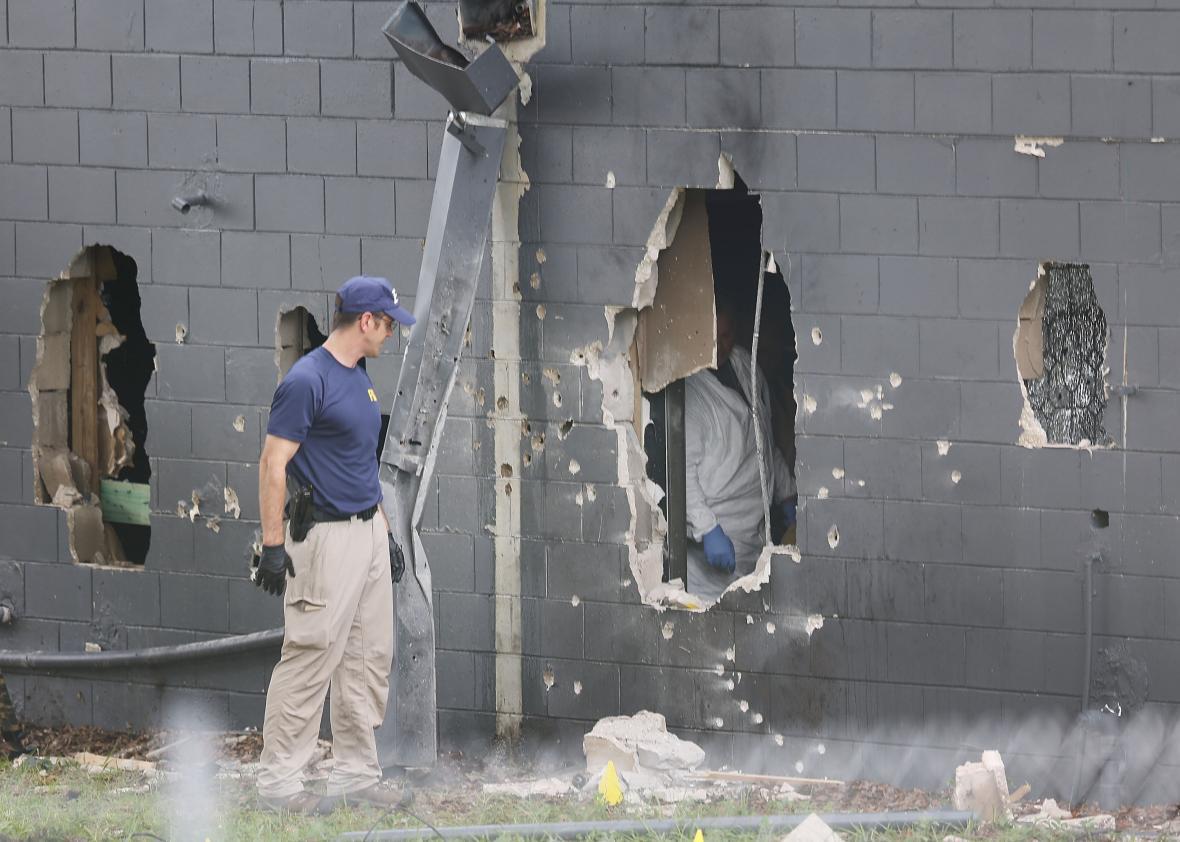In the days since a shooting took 49 lives at an Orlando gay club on Sunday, everyone has been searching for some meaning in this unthinkable event. On Monday, I woke to the sound of British pundits discussing the attack as a symptom of America’s love affair with guns. Downstairs, the story was splashed across the front page of every newspaper on my stoop, with dozens of articles carefully tiptoeing around questions about Islam and terrorism. Monday night at the Stonewall Inn in New York City, the LGBTQ community gathered to claim the event as an attack on our tribe—though at one point, someone shouted, “Black lives matter,” a passerby responded “All lives matter!” and for a moment, the focus was lost.
But for many of the people in my community—that is, the group of people that make up New York’s gay nightlife—the attack in Orlando is not about anything. It’s not about gun control, terrorism, religion, queer safety, or race. It doesn’t bear a meaning or a lesson. Our response is visceral: We simply feel unsafe. Gay bars, our places of work, have once again become targets for anti-gay violence—and with a fury not seen since the early, far more openly hostile days of the liberation movement. So while other people try to figure out how to frame this moment intellectually and politically, we’re experiencing a reaction that’s almost physical as we try to go on with business as usual.
I couldn’t absorb the news about Orlando on Sunday morning. I spent a full day pushing it from my mind before I stumbled on a New York Times infographic that shook me—a floor plan of Pulse illustrating how the shooting took place. Somehow, this simple diagram brought the story out of the abstract and into the tangible. For the first time, I could see that Pulse isn’t some Queer as Folk made-for-TV dance hall. It’s just a typical gay venue, offering enough room for a few tables and benches around a modest dance floor. And that, as New York City drag queen Monét X Change explains, is exactly what makes the events in Florida so frightening for anyone who makes their living in gay spaces. “In the past decade we’ve heard about countless acts of senseless violence around the world and around our own country,” she said. “But this could have happened at any of the bars where I work, at any day of the week.”
Pulse is extraordinary because it’s so ordinary. When I see how much it resembles venues across the New York area, I can’t help thinking that those venues are equally vulnerable to violence. For years I’ve loved working at places just like Pulse in the city, enjoying the sense of safety and relief that comes with escaping the straight world. These crowded bars have felt intimate, offering a comforting embrace. But now, that atmosphere has been shattered. The small spaces seem claustrophobic, the dance floors too bare and exposed. And the people responsible for protecting these venues are feeling the burden. When I talked to James Wells, a manager at Therapy Lounge in the Hell’s Kitchen neighborhood, he expressed deep unease. “This terrible incident has caused me to caution my staff and make everyone aware of our establishment as a whole for all of our safety,” Wells, told me. “If you see something, say something has a renewed intensity in this sad time.”
I’ve written a lot about gay bars as metaphorical battlegrounds. I’ve considered the territorial tensions between drag kings and queens; the problem of straight female invaders; the cat-and-mouse game played out by queens and the straight men who chase them. But—perhaps because I am lucky enough to be a young New Yorker—I’ve never had to consider gay bars as sites of literal violence, crisscrossed by gunfire. All politics and cultural comment aside, this is a terrifying moment for anyone who comes to enjoy themselves in queer spaces—LGBTQ or straight. And it’s particularly terrifying for the people who makes their living in gay clubs.
I don’t want to suggest that New York City’s gay nightlife community has been weakened or discouraged. When talking about Orlando here, almost everyone expresses deep sympathy for the victims and their families, a sense of solidarity with survivors, and a hope that we can prevent something like this from happening again. Chris Dunbar, a manager at Industry in Hell’s Kitchen commented, “I am determined to make sure everyone feels that our bars and venues are the sanctuaries they need—safe havens to be and love exactly as they please.” And Ms. Change went a step further. “Being ‘afraid’ doesn’t resonate with me, but being active does,” she told me. “Showing these bullies that their actions will not dictate how I live my life is the biggest slap in the face that myself, my friends, and our community can give these cowards.”
But I also don’t want to manufacture a sense of optimism. While we send our prayers and support to Florida, the fact remains that, on a national scale, our community has suffered an unprecedented attack—the worst mass shooting in U.S. history. This is an irrevocable loss. It would be dishonest to try to frame it as a galvanizing event for LGBTQ people. It would dishonest to pretend that we truly feel the suffering of those directly affected by the event—we cannot begin to imagine what they are experiencing. All we can honestly say is: A gay bar has been attacked, and we work in gays bars; gay bodies have been attacked, and our bodies are gay.
